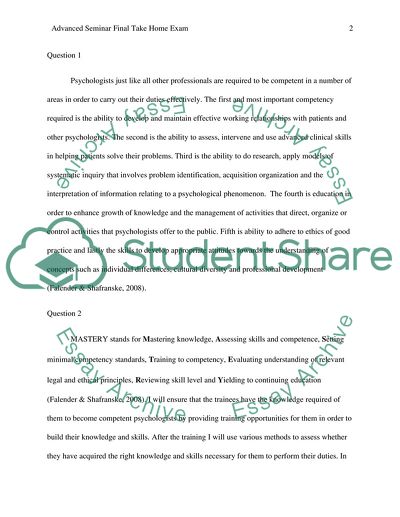Cite this document
(Clinical Psychology Competencies Assignment Example | Topics and Well Written Essays - 1500 words, n.d.)
Clinical Psychology Competencies Assignment Example | Topics and Well Written Essays - 1500 words. Retrieved from https://studentshare.org/psychology/1584863-advanced-seminar-final-take-home-exam
Clinical Psychology Competencies Assignment Example | Topics and Well Written Essays - 1500 words. Retrieved from https://studentshare.org/psychology/1584863-advanced-seminar-final-take-home-exam
(Clinical Psychology Competencies Assignment Example | Topics and Well Written Essays - 1500 Words)
Clinical Psychology Competencies Assignment Example | Topics and Well Written Essays - 1500 Words. https://studentshare.org/psychology/1584863-advanced-seminar-final-take-home-exam.
Clinical Psychology Competencies Assignment Example | Topics and Well Written Essays - 1500 Words. https://studentshare.org/psychology/1584863-advanced-seminar-final-take-home-exam.
“Clinical Psychology Competencies Assignment Example | Topics and Well Written Essays - 1500 Words”, n.d. https://studentshare.org/psychology/1584863-advanced-seminar-final-take-home-exam.


